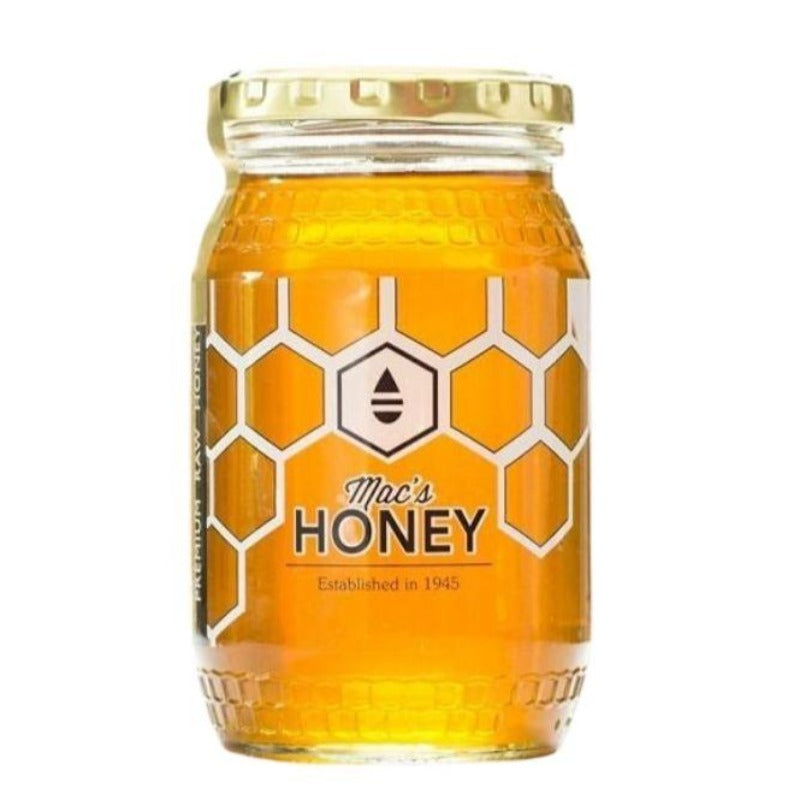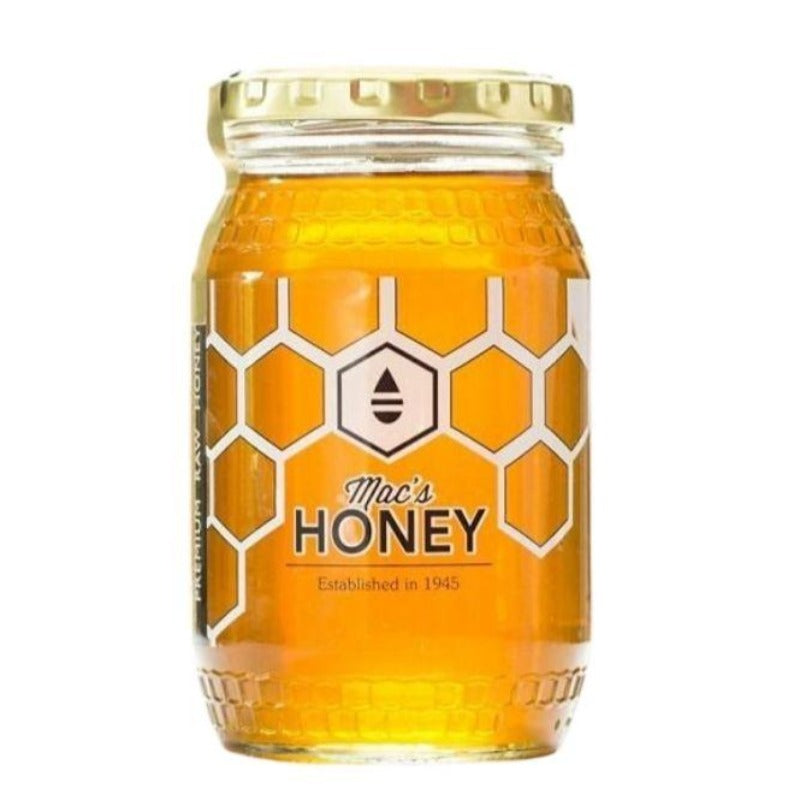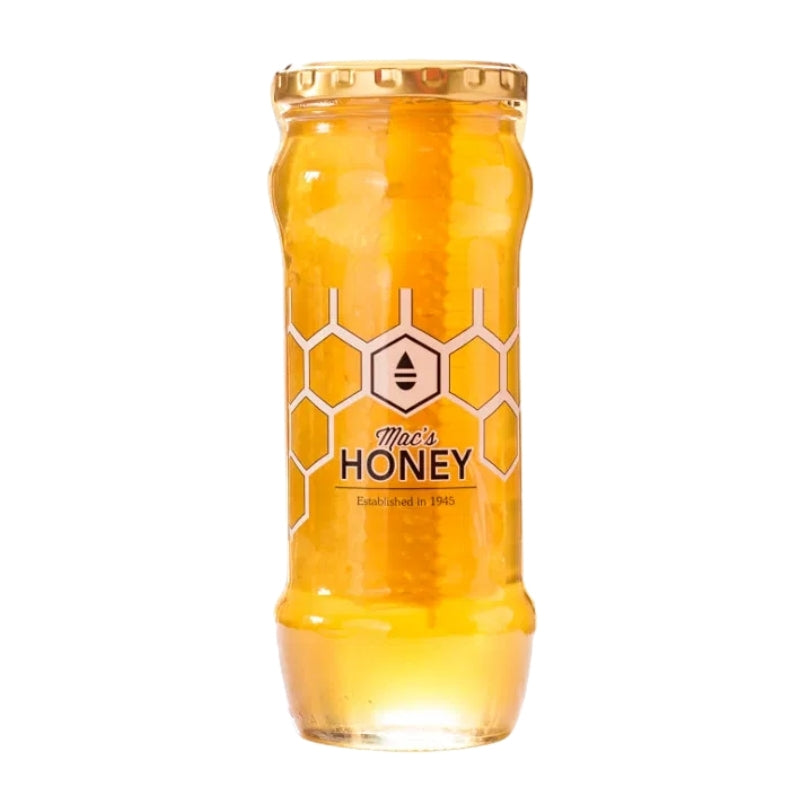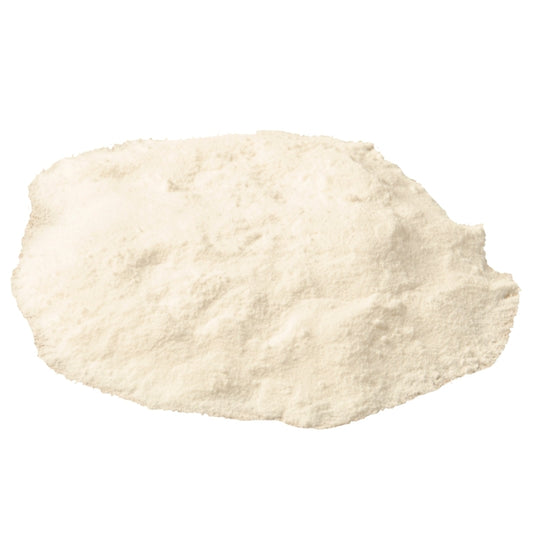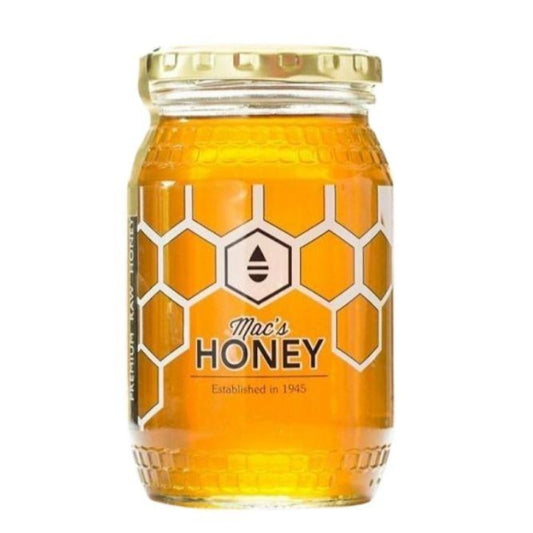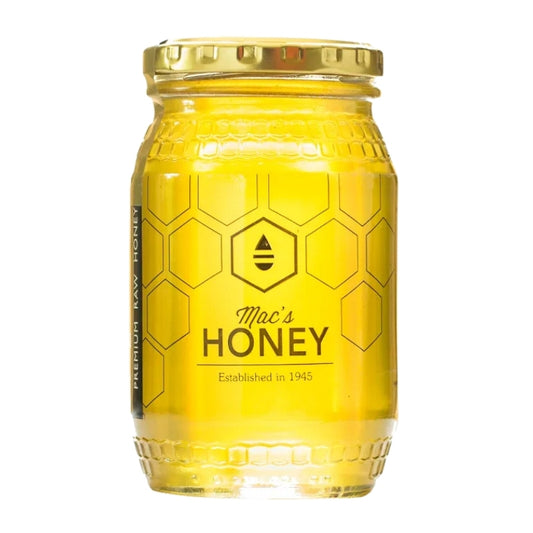
OH HONEY! Let’s Fix That Skin -
Aiden van WykIs Honey really magic?
Can a sweet goo partially digested by Bees really be slathered on our skin to counter acne, eczema, burn wounds and the signs of aging?
Should you be pouring Honey onto your face right now? And can you use generic Honey from the shop?
Honey has been relied on in skincare for centuries, and it's still showing up. But does it really deliver? Let's dive into the sweet truth about Honey in skincare, and how you can start formulating with it too.
What is Honey actually?
Honey is made by Bees, Mother Nature's little DIY formulators, to store energy rich nectar for later access. Bees rely on flower pollen for sustenance, meaning in tough times like Winter - which must seem like an annual apocalypse for those little guys - this energy concentrate is their only lifeline.
Here is how honey is produced:
- Worker Bees visit flowers - and sometimes your personal space. At the flowers they swallow nectar, a sweet liquid produced by plants to attract tiny animals who help spread their pollen.
- While in the Bee's stomach, the nectar is broken down into simple sugars like fructose and glucose.
- When the Bee arrives back at the hive, it regurgitates the digested nectar and passes it mouth-to-mouth to fellow Worker Bees. What it does, along with the Bees fanning their wings, is help evaporate excess water from the nectar, making it thick and golden.
- Once the nectar is dehydrated enough it becomes Honey. The Bees deposit the Honey into the hexagonal cells of the Honeycomb.
- The Bees then seal the Honey-filled cells with Beeswax - a wax that Bees themselves produce by converting Honey into Wax with special wax-producing glands. This protects the Honey from contamination and further reduces the moisture, making sure that it's preserved long term.
Why is Honey great for skin?
Honey functions like a dermal adaptogen - responding to your skin's unique needs, offering hydration, healing, anti-aging benefits, and microbiome balance all at once. This versatility comes from its complex and intelligent design.
How Honey is anti-aging:
Honey is rich in flavonoids and phenols. These are potent antioxidants that stop free radicals from damaging collagen and speeding up aging. It also contains an enzyme called Glucose Oxidase, which slowly produces small amounts of Hydrogen Peroxide. This is activated by moisture and stimulates fibroblasts - your skin's collagen-producing cells - helping to improve firmness, elasticity, and skin texture. These enzymes also support your skins microbiome.
Honey is also highly concentrated in amino acids, the building blocks of collagen and essential components for skin repair. This supports smoother, stronger, and more youthful-looking skin over time.
How Honey is moisturising and repairs the skin barrier:
Honey's natural sugar levels act as humectants, binding water molecules and drawing moisture from the air into the skin - even at a molecular level. This keeps your skin hydrated and plump the same way Hyaluronic Acid would, though to a lower degree.
Its high sugar content also creates something called an Osmotic Gradient. While this sounds highly technical, all it means is that the concentrated sugars in Honey draw moisture from deeper layers of the skin and/or surrounding environment toward the surface. This helps keep the skin hydrated while also gently reducing puffiness. Honey further supports and repairs the lipid barrier - your skins first line of defence - making it especially soothing for anyone recovering from harsh skincare routines or barrier damage.
How Honey is selectively anti-inflammatory:
Not all inflammation is bad, and Honey has the unique ability of selectively modulating inflammation, depending on what's best for your skin:
- It downregulates pro-inflammatory Cytokines like MSM would, helping to soothe conditions like eczema, psoriasis, and rosacea.
- It upregulates healing pathways in cases of wounds or burns, improving blood flow where needed.
This combined helps balance your skin's inflammatory response - calming redness and irritation without suppressing healing where it's needed.
How Honey is antimicrobial but still nurtures the microbiome:
Honey is naturally antimicrobial in many ways:
- Its high sugar content draws moisture out of microbes.
- Its low pH inhibits bacterial growth.
- It produces Hydrogen Peroxide, which damages bacterial DNA.
- Bees intentionally create antimicrobial peptides and add it to Honey, as it's designed to preserve the Honey and protect against bacteria.
More than this, Honey tends to penetrate and disrupt biofilms - that is communities of bacteria - while simultaneously supporting your skin's beneficial flora with its minerals, prebiotics, vitamins and amino acids. This selective action makes Honey an ideal ingredient for microbiome-supportive skincare.
How Honey speeds up wound healing:
Honey stimulates growth factors, fibroblasts, and platelets, all crucial for tissue regeneration. It promotes Angiogenesis - the formation of new blood vessels - which improves blood flow and accelerates healing. This leads to faster recovery and less visible scarring.
Its slightly acidic pH also helps break down damaged proteins and enhances oxygen release from your Haemoglobin, boosting the energy available for cellular repair while limiting bacterial growth.
Can you use Honey on your hair?
Surprisingly, yes! All the benefits above could be applied specifically to your scalp microbiome and overall hair health. Add Honey to your conditioner, shampoos, scalp spritzes, curly creams or even do a 100% Honey Hair Mask.
Here is why Honey is particularly useful in Haircare:
- Honey attracts and retains moisture, making it especially beneficial for dry, brittle, or curly hair.
- Honey stimulates circulation and nourishes hair follicles, creating a healthier environment for hair growth.
- Honey helps seal the hair shaft, locking in moisture and leaving your hair softer, shinier, and easier to manage.
- The enzymes and antioxidants in Honey help repair damage, including heat damage done to hair, when used regularly over time.
Not all Honey is Equal
The benefits of Honey in skincare depends on it still containing its active ingredients. Unfortunately, most of the usual store-bought Honey is highly processed and stripped of the many nutrients and active compounds that makes Honey so effective for the skin. Standardised store Honey processes often include:
- Pasteurisation, which means heated. While it's done to improve shelf life, it destroys enzymes like Glucose Oxidase.
- Filtration, removing the pollen and propolis which contain many of the beneficial compounds mentioned above.
- Standard Processed Honey also occasionally contain synthetic sugars and syrups, reducing the antioxidant activity by up to 70%.
Does the type of Flowers Bees collect Nectar from impact the Honey?
Yes, and a great example of this is the well-celebrated online Manuka Honey. It's produced by bees that forage on the Manuka plant, giving the Honey its exceptional antibacterial properties and impressive wound-healing abilities.
While Manuka Honey is certainly uniquely powerful Honey - any Raw and Unfiltered Honey is a great option. It retains the natural enzymes, antioxidants, and bioactive compounds that make Honey such a powerful ingredient - all while allowing you to support local beekeepers and small businesses.
Unlike Manuka, which is only produced in New Zealand and parts of Australia, Raw Local Honey gives us varieties that feel like home, including options like Eucalyptus Honey or Orange Blossom Honey, each with their own flavour and benefits.
For the best results, always choose Raw Honey over processed alternatives.
Can people who are allergic to Bees use Honey?
We generally advise caution when using Honey if you're allergic to Bees. While Bee stings and Honey are not the same, there is a potential risk of cross-reactivity, especially in individuals with severe Bee Venom or Pollen allergies.
This is especially relevant with Raw, Unfiltered Honey which might contain trace amounts of Pollen, Bee Proteins, or other bits of Bee that could trigger a reaction.
Topical Honey is usually well-tolerated by most people, but if you have a Bee allergy or very sensitive skin, it's best to do a patch test first. If you have a history of anaphylaxis from Bee stings, we'd suggest avoiding Honey altogether - or at the very least, consulting a healthcare professional before use.
The Medicinal Benefits of Honey
Even though this is an article on the cosmetic use of Honey, my aunt would be incredibly upset if I did not mention how amazing Honey is for your internal health too. If you even think about coughing at her house - one blink and there she is already before you, with a teaspoon of Honey (and Onion juice?) already prepared to heal you - whether you like it or not.
She's the best! :)
Here's how Honey helps internally:
- Manages Blood Sugar: Honey may help lower blood sugar due to its antioxidant content, making it safer than refined sugar in moderation.
- Heart Health: Honey's antioxidants reduce cholesterol and blood clots, lowering the risk of heart disease and heart failure.
- Asthma and Cold Relief: Honey can ease coughs, reduce airway inflammation, and support chest health - this is very helpful for asthma and bronchitis.
- Internal Healing: Ingested Honey boosts immune response and tissue repair, supporting healing from the inside for ulcers and fighting infections.
- Rich Antioxidant Source: Rich in flavonoids and phenols, Honey neutralises free radicals, slowing aging and reducing chronic disease risk.
- Sustained Energy: Honey releases sugar slower and more sustainably in comparison to the immediate spikes of normal glucose, enhancing endurance.
- Nurturing Children's Bodies: In kids over a year old, Honey is found to support healthy energy, digestion, and immunity - while some believe it too to support kid brain function and healthy weight gain.
Note: Honey should not be given to infants under 12 months of age. When consumed, Honey can contain dust particles that may carry spores of Clostridium Botulinum, the bacteria that causes botulism. Although rare, infant botulism is a serious illness and a real risk for them as they still have underdeveloped immune systems. - Nurturing your Gut: Honeys enzymes and prebiotics aid digestion and nourishes the gut, improving nutrient absorption from the food you already eat.
So, the next time you're battling with a Flu, make yourself some Elderberry or Mullein Tea and sweeten it with Raw Honey - your body will thank you and my aunt will give you a knowing smile.



